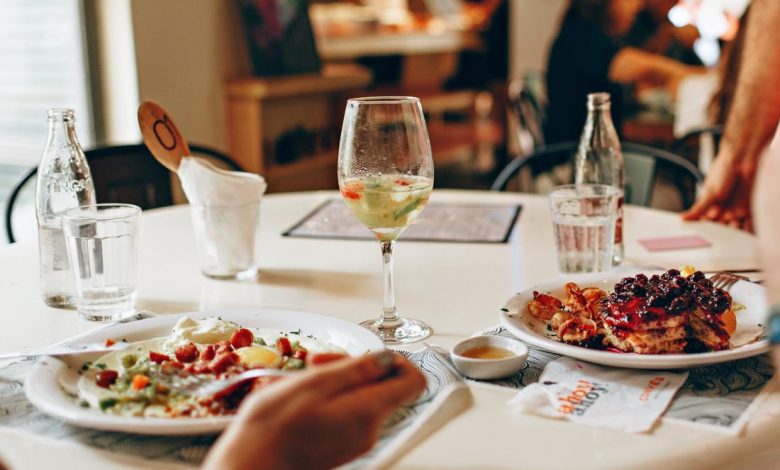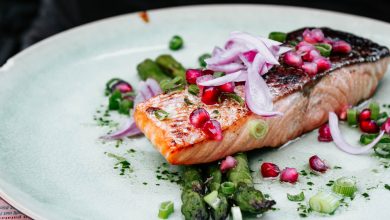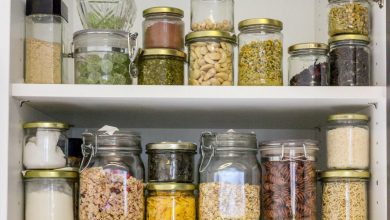Is it possible to dine socially and stay safely gluten-free?
Eating out is a staple in many cultures, whether eating out at a friend’s house, grabbing fast food, or going to a sit-down restaurant. People eat out to celebrate everything from birthdays to victories, and needing to eat gluten-free shouldn’t keep anyone from participating. Eating out while needing to stay gluten-free is difficult, but it’s not impossible.
Eating at the homes of others is a common form of eating out. First thing’s first: communication. While you don’t want to get sick, you also don’t want to come across as entitled or overly apologetic. Tell your host that you have eating restrictions politely and honestly. If you prefer, offer to bring food so you can participate in the gathering without taking a chance on foods prepared by well-meaning hosts.
If your host insists that they can prepare gluten-free food for you, don’t downplay your needs and let them know how to meet them. Suggest recipes and that all foods be prepared in new or lined dishes. Ask that they please provide serving utensils for every dish and dip, so no one accidentally dips a spoon covered in a glutinous food into a gluten-free one, and that glutinous foods and gluten-free foods don’t share serving space. Consider volunteering to come over and help with prep, both for the host’s sake and for your peace of mind.
Fast food is probably the most challenging version of eating out. Food is prepared en masse by workers trying to serve as many people as quickly as possible. The chances for gluten contamination are high, but that doesn’t mean you have to give up on your favorite quick bite eatery.
First, check the menu ahead of time for naturally gluten-free items. French fries come to mind immediately, as well as meats that haven’t been breaded. Don’t be discouraged if everything appears to come in a bun; fast food places are often happy to replace the bun with a piece of lettuce to hold toppings in place.
Second, there are a few things you need to ask, such as whether your items can be prepared on clean surfaces that haven’t yet touched foods containing gluten. This goes not just for knives and surfaces but also for the fried oil and the grills used to cook. Many fast-food restaurants have a dedicated gluten-free fryer, so all you have to do is ask. If not, you can try requesting that they cook your food on aluminum foil. Also, don’t forget to politely request that anyone preparing your food put on a fresh pair of gloves.
Next, be sure to go inside or call to place orders when possible. Speaking face to face when you need to ask about fryer oil things will be simpler than yelling through a drive-through microphone. Also, consider eating either earlier or later than rush times. Since you will have questions to ask, give yourself and the staffer helping you plenty of time. Someone who might otherwise be very helpful may not be able to be if the line behind you is too long. If you’re not sure when peak time is, check out their Google listing as it usually has that information.
Finally, don’t ever settle for just throwing away the bun, particularly if you have celiac disease. Removing the bun doesn’t remove all of the gluten; make sure the restaurant knows that too.
If all of this sounds too overwhelming, that’s all right as well. Here’s a list of the best and worst places to grab gluten-free menu items in a hurry without having to think so far ahead, but always remember to ask about cross-contamination.
Sit-down dining may be the safest way to eat out, especially if you aim for a fine dining establishment over a casual chain eatery. Why? Because it is easier to call ahead and make arrangements for your needs. Whether this is a local chain restaurant or a fine dining establishment, there will be a list of questions you need to ask. Both you and staff will have an easier, more pleasant experience if you call first.
Be sure to speak directly to either the manager or the chef. When communicating your food safety needs, talking to someone in charge is always preferable. You’ll need to be clear: this is a medically necessary diet. Gluten.org offers an excellent, brief example of how you can state this in a polite but firm way.
Schedule a reservation so that the kitchen knows what day and time to expect you. A reservation will allow them to prepare to meet your needs. Ask if what you plan to order has no gluten-containing ingredients. Don’t be afraid to ask the staff to check labels for you or, if you prefer, to provide a brand name so you can check yourself.
Double-check that prep and cooking areas, utensils, and tools will all be completely gluten-free, meaning that they are washed and sanitized before being used on your food and won’t be used on any other foods before yours. If it sounds like this may be too difficult, ask if cooking or prep work can be done on a piece of aluminum foil. The foil will keep your food from any direct contact with contaminated surfaces. Don’t forget that even gloves need to be fresh when handling your food to protect your health.
When you arrive, let your server know about your gluten-free dietary requirements. Wearing a med-alert bracelet can be helpful for lending weight to your claims. Your server needs to be your greatest ally for your night out to be a success! It’s your server whom you will ask to double-check on the safety of your food prep, to bring you a sauce bottle so you can read the ingredients, and who you’ll confirm your meal with once it’s on the table but before you take that first bite.
Your server will earn a generous tip, so make sure to leave it, and don’t be shy about asking them to share your thanks with the chef, manager, or other staff that contributed to your ability to have a safe dining experience.
Take Part; Eat Out
Don’t let your gluten-free needs stop you from existing in the social space or convenience of eating out. While not as simple to do as it was when you ate whatever without worrying about the ingredients, eating out safely and enjoying yourself are still possible. You can eat out safely with some extra effort; you’ll often find that those going with you and those who help serve you are willing to help carry the load.
Sources:
https://www.glutenfreeliving.com/gluten-free-lifestyle/tips-advice/8-surprising-things-you-need-to-do-to-avoid-gluten-cross-contamination/
https://gluten.org/2019/10/18/restaurant-dining-seven-tips-for-staying-gluten-free/














